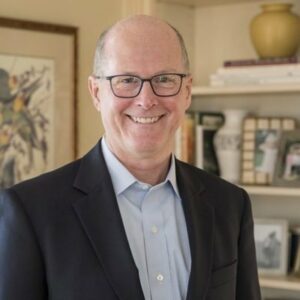In the wake of the incident at Stanford University Law School in which a federal judge was shouted down by students and berated by a member of the administration, NHJournal sat down for a podcast conversation with James Dean, president of the University of New Hampshire. The Q&A below was taken from that interview, which can be found in its entirety here.
NHJOURNAL: I want to talk to you about the conversation people are having both in New Hampshire and around the nation regarding free speech, academic speech, and where lines should be drawn. At NHJournal we’ve reported on the work of FIRE — the Foundation for Individual Rights and Expression — on the various rankings that the universities here in New Hampshire have received.
Could you tell us about UNH’s history with FIRE and what the rankings mean to you?
UNH PRESIDENT JIM DEAN: So, FIRE is an organization that was founded in order to assess how higher education organizations are doing on their responsibilities for free speech. Most of their focus is really on higher education organizations in free speech. And for the last five years, not only UNH but all three institutions in the university system in New Hampshire, have gotten green light ratings. So they have pretty straightforward red, yellow, and green light ratings. Prior to 2018, I understand there were some yellow lights, but they’ve been all green for the last five years.
NHJ: It’s interesting to compare that to Dartmouth, the Ivy League school here in the state where they’ve struggled to maintain a ‘Gentleman’s C.’ Why is this ranking important to you as president of the university?
UNH DEAN: There are two levels. First, free speech is arguably the most fundamental American constitutional right. It’s literally the First Amendment to the Constitution. So as a citizen and as a proud American, this is really important to me. In all settings, democracy really depends on free speech. And you can see in places around the world that don’t have democracy, that free speech is compromised. It’s a very slippery slope.
Beyond that, as a higher education organization where the whole deal is to be exposed to new ideas and different ideas, we have a sacred right to make sure that people are exposed to a wide range of ideas and can learn how to think and consider ideas on their own.
Now, one thing I want to be clear about, though, is this doesn’t mean that your ideas never get criticized. That’s not what the First Amendment says. But it should be a marketplace for ideas, and the marketplace should be open to all ideas.
NHJ: Let’s talk about some of the high-profile incidents we’ve seen around the country and apply the standard you just laid out. For example, when a federal judge was invited to speak at Stanford Law School. The problem wasn’t the disagreement with the judge’s opinions. The problem was the judge was not allowed to speak. And then a member of the administration who works in the DEI area came in and lectured the guest speaker. How do you expose people to new ideas when, like you said, you don’t get a chance to criticize them, to ask tough questions, or to say, ‘I think you’re wrong.’ You simply do not allow them to express their opinions in the first place.
UNH DEAN: The situation you’re talking about is really a travesty. You gave Dartmouth a ‘Gentleman’s C.’ You’d have to give Stanford an F minus on this one.
“What you’re talking about is called the ‘Heckler’s Veto.’ That means a university has not only the right but the responsibility to allow someone to speak and not allow someone else to keep them from speaking by heckling. And Stanford did not rise to the occasion. I will say that UNH has risen to that occasion several times. We’ve had speakers across the political spectrum on campus, and we’ve ensured that they had the opportunity to speak as they should.
NHJ: There is a perception that if your politics are center-right, walking onto a campus in America is enemy-held territory. Is that an accurate description of the climate around the country? And do universities have some duty to try to communicate to students that part of the university mission is to help you create a space where you can hear ideas that you find offensive, understand them, debate them, and so on?
UNH DEAN: I would say that by what we’ve done at the University of New Hampshire has demonstrated our commitment to free speech across the spectrum. We’ve had Turning Point USA here. We’ve ensured the Turning Point event was safe, and the speaker and able to speak. And in fact, the speaker, Charlie Kirk, thanked the students for their respectful listening at the end of his talk.
So, it’s one thing for me to say this is what we believe, but we’re actually walking the walk. And we’ve actually done this on several occasions. And I will say that some of our students are unhappy with that because there are students who believe that free speech rights should be limited based on what people say. But they’re wrong, based on the Constitution and our responsibility.
New Hampshire is a pretty purple state. A lot of our students come from New Hampshire, they come from families across the political spectrum. So, I think it would probably be incorrect to think that UNH is predominantly liberal or progressive. In fairness, I think I would also say that if you look over the course of a lifetime, younger people probably tend to be more progressive or liberal. And as people get older, they tend to shift a little bit to the right.
NHJ: And then there’s the basic question of why should the state government fund a public university?
UNH DEAN: We are the biggest provider of talent for the workforce of New Hampshire. Full stop. We’re bringing both people from within New Hampshire and from outside New Hampshire to the professional workforce in a way that no other entity is.
I’m a member of the Business and Industry Association executive board. That board has endorsed additional funding for both our four-year universities and for the community colleges. Why? Because they’re desperate for talent and we are providing talent. The higher tuition goes, the more likely students are to leave the state and go someplace else and not come back. And we need them here.
We’ve just doubled the size of our nursing program at UNH. Keene and Plymouth have also done a lot in terms of nursing. We do a lot of pre-med. Fidelity is a big employer here, and our students go into financial services. We have also a lot of engineering firms. You look at DEKA in Manchester, what they’re doing with tissue engineering. You look at BAE Systems, you look at Lonza.
We are the provider of the workforce of New Hampshire. And if the tax base in the economy is going to flourish, it has to flourish because of educational organizations. There’s not a single vibrant, flourishing area within the entire United States where there’s not a university that’s contributing to it.




